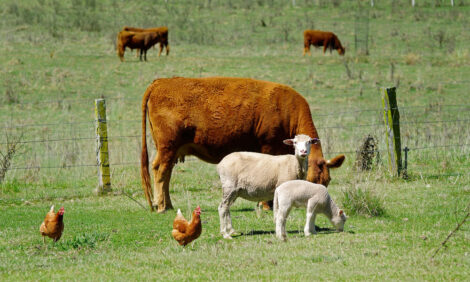



Chicken Farm Closes Ahead of Welfare Changes
NEW ZEALAND - A Christchurch chicken farm is being wound up by a feed supplier after its owner threw in the towel due to low profitability and the ongoing costs of keeping abreast of animal welfare requirements.Stuff.co.nz reports that Longview Poultry Farm 2004, based in Yaldhurst, was put in the hands of PricewaterhouseCoopers partners Malcolm Hollis and Maurice Noone at the Christchurch High Court last week.
Mr Hollis said the business stopped operating in mid-February after the director, Larry Paul, decided it was too difficult to continue.
The farm had been an egg-producing business with "a number of thousand" chickens housed in a 1950s barn, Mr Hollis said.
"It's now a rather dilapidated egg-chicken facility with no animals still out there."
The constant requirement to upgrade the operation to meet relevant animal welfare codes and reasonably extensive maintenance costs led to the director pulling the plug on the business after about eight years of trading, he said.
Egg Producers Federation of New Zealand executive director Michael Brooks said rising costs and limited profitability were squeezing many farmers, and for cage farmers that was compounded by uncertainty over the impending changes to the layer-chicken welfare code.
The review, which is expected to be released this year, will change the minimum standards for chickens and get rid of battery farming.
Under the new code battery cages will be banned and the 45 farms using the system will have to change to either free range, barn raised or a new colony system which has larger cages.
The industry supported the changes, however it needed about 18 years to make the transition which is expected to cost about $150 million, Mr Brooks said.
The transition had to be carefully managed otherwise the supply of the household staple could be disrupted and prices could skyrocket as had happened in Europe, he said.
In 1999, the European Union directed that cage farming should be phased out with a ban from the beginning of this year.
Even with 13 years' lead in, the average price across Europe jumped 77 per cent in March compared with the previous year as supply fell.
Margins were minimal or non-existent for many egg farmers and it was difficult for all types of egg-laying operations, he said.











